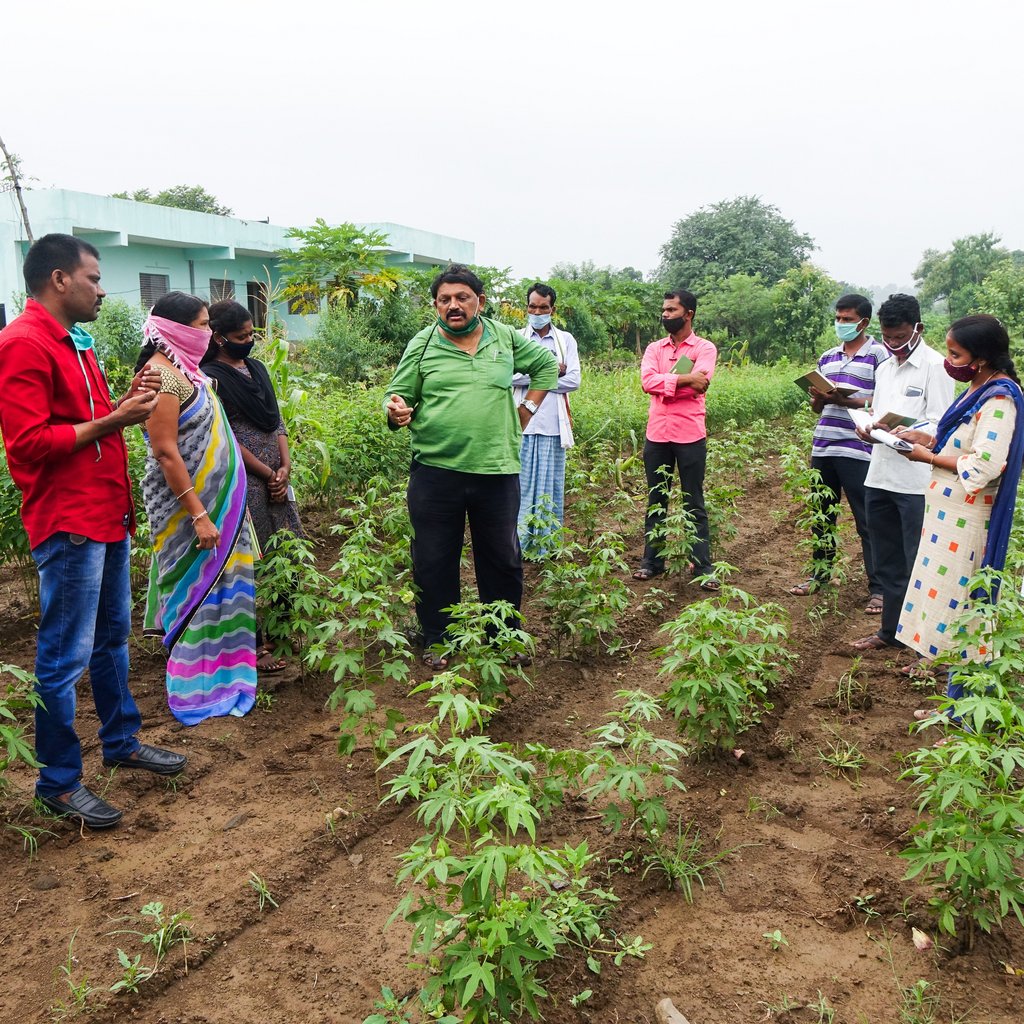Green Cotton - Seeding the Green Future
What do we see on the project photo?
Farmers participating in a training session on evaluating promising traditional cotton (G. arboreum) cultivars regarding important industry preferred traits and farmers' preference for promising traits to be considered in non-GM cotton cultivars breeding.
How would you explain to a child what the project is doing?
The clothes we wear come from a plant. One needs a healthy seed to grow a healthier plant. So, organic farmers need to get good quality seeds with no genetic modifications. Thus, the project works with farmers to develop good quality seeds that can be cultivated without harmful chemicals and the clothes we wear are environmentally friendly.
What is the project’s main objective?
The overall objective is to secure the seed supply chain for organic cotton farmers, develop a portfolio of new cotton cultivars with improved performance, strengthen the collaboration among the actors, and thus improve the integrity of the organic cotton value chain. This will also strengthen the income security of smallholder organic cotton farmers.
Why is the project important?
Organic cotton production is severely affected by the overdominance of Bt cotton. In the absence of non-Gm seeds, farmers risk complete rejection of organic cotton harvests due to physical or genetic contamination of Bt-cotton. Steady actions are needed to re-establish non-GM seed supply chains to support India's organic and low input cotton farmers.
What has been the most positive moment during the project?
The project has generated strong interest and demand from farmers wishing to adopt non-GM varieties for organic cultivation. In 2020, 15 new cultivars bred on farmers' fields were introduced to farmers for pilot cultivation and seed multiplication. The project team was delighted when efforts to save non-GM cotton seeds were recognized internationally by the SFIAR team award 2021.
What have been the biggest challenges encountered in the project?
Despite many claims about the availability of non-GM cultivars, the scouting and collection of germplasm suitable for organic conditions were time-consuming and challenging in phase 1. Multiplication and seed distribution of farmer breed varieties remain a constant challenge due to the absence of organic variety release guidelines.
Which is the most important lesson learnt from the project?
The main learning of this project was that using participatory breeding and research methodologies is key to empowering organic cotton growers' associations for autonomous seed availability. The project also highlights the importance of enabling policy frameworks specific to farmers and organic breed cultivars for a sustainable supply of non-GM cottonseed.
About the project
Title:
Green Cotton / Seeding the Green Future?
Contact:
Amritbir S. Riar, Project Leader
Duration:
Phase I: 2013-2016 / Phase II: 2017-2023
Funding institutions:
Stiftung Mercator Schweiz and Organic Cotton Accelerator (OCA), The Netherlands
Implementing institutions:
Research Institute of Organic Agriculture FiBL, Switzerland
Action for Social Advancement (ASA), India
Centre for Sustainable Agriculture (CSA), India
Chetna Organic, India
CottonConnect, India
Dr. Panjabrao Deshmukh Krishi Vidyapeeth, Akola University (PDKV), India
Rajmata Vijayaraje Scindia Krishi Vishwavidyalaya (RVSKVV), India
Vasudha Swaraj Private Limited, India
Links to further information:
Project website
Project photos
Videos: SGF process

